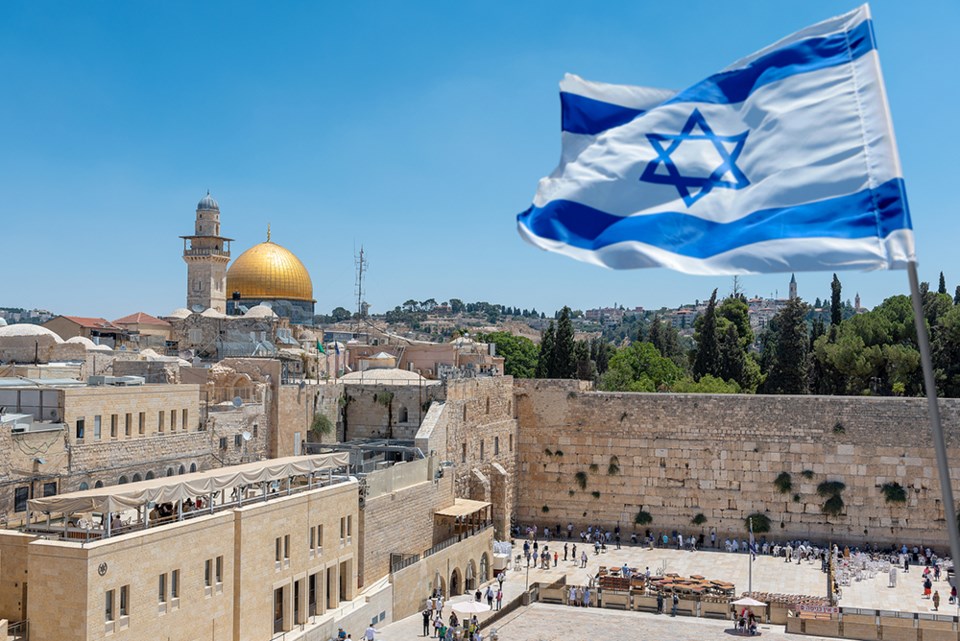Over the last few weeks, as Israel celebrated its 75th anniversary of independence from the United Kingdom, there have been a flurry of “Nakba Day” events denigrating the Jewish State and delegitimizing its right to exist.
Nakba, which means ‘catastrophe’ in Arabic, is an anti-Israel term which seeks to characterize Israel as a foreign imposition in 1948 and which falsely depicts Jews as interlopers despite 3,000 years of Jewish history in the land of Israel.
There has been considerable coverage in Canadian news outlets which have jumped onto this anti-Israel bandwagon, often repeating false allegations.
One column which was published on May 23 in The Prince George Citizen by Gerry Chidiac was entitled “Remembering the Nakba and loving our neighbours.” Chidiac’s commentary told a nostalgic story of peaceful coexistence before Israel’s rebirth in 1948, almost in idyllic terms.
Unfortunately, much of this image is without foundation. Chidiac quoted a book by Elias Chacour, “Blood Brothers”, and wrote that the author “speaks fondly of his childhood (in Israel) and the peaceful coexistence of the region’s Christian, Jewish and Muslim communities,” presumably in tacit contrast to contemporary conflict.
Chidiac continued by stating that “it can be argued that anti-Semitism (sic) was a largely European concept.”
But this positive retelling of history serves to whitewash what was often a brutal life for the region’s Jews prior to Israel’s independence. In Hebron, a city with thousands of years of Jewish history, dozens of members of the city’s Jewish community were massacred in 1929 in what was unmistakeably a violent pogrom. It was far from the only such incident; other antisemitic attacks happened intermittently.
Chidiac’s imaginary retelling of what life was really like before 1948 may be sincere, but it is simply at odds with reality, and failing to accurately depict the truth gives the false impression that it was the creation of Israel which led to religious tensions.
Unfortunately, widespread anti-Jewish actions by Arab states did not end in 1948, either.
After Jordan captured eastern Jerusalem during Israel’s War of Independence (when the Jewish State’s Arab neighbours invaded the newly reborn country and attempted to destroy it), it committed wholesale historical genocide on the city, destroying hundreds of synagogues and turning ancient Jewish graves into a latrine for its soldiers.
Even more misleading than Chidiac’s revisionist history of pre-state Israel is his underlying message that religious intolerance and conflict is widespread now, but this too is false.
In Israel today, regardless of their religious or ethnic identity, all citizens are guaranteed equal rights under the law, including the right to vote, be elected to public office, pursue any career they wish or live wherever they want. Arab political parties have consistent political representation in the Knesset (Israel’s parliament), and in the last Israeli government, an Arab party, Ra’am, even sat in the governing coalition.
However, that is not to suggest there are not religiously-motivated tensions between Israelis and Palestinians, but the culprit is not Israel.
Hamas and Palestinian Islamic Jihad (PIJ), the two largest Palestinian terrorist organizations, are both stridently Islamist extremist groups who are dedicated to the destruction of Israel through violent means, and which envision Israel being replaced by an Islamist theocracy. Both groups have long carried out brutal acts of terrorism against Israeli civilians, and have cumulatively murdered scores of innocent Israelis civilians.
Unlike Palestinian Islamic Jihad, Hamas is more than a terrorist group. It is also the governing power of the Gaza Strip, home to roughly two million Palestinians who it keeps as active hostages during its regular rocket attacks against Israel.
Israel’s legitimacy does not stem from the existence of antisemitism prior to 1948, but from its extensive legal and historical rights to the land. Nonetheless, the widespread incidence of violent Jew-hatred committed by Arabs living in the British Mandate for Palestine serve as a potent reminder that Israel is more than the culmination of Zionism, the Jewish People’s desire for self-determination. Israel’s existence is also a reminder that the country serves as a safe haven for Jews fleeing violence and persecution, which they could not yet do in the 1920s and 1930s in the face of brutal Arab violence against them.
Chidiac ends his column by writing that “violence and deception are getting us nowhere, and will in fact exacerbate tensions in the region.”
In that respect, he is correct, but without properly identifying the source of said “violence and deception,” there will be no progress toward truth.
Despite its ancient and historic roots in the land, coupled with its rights under international law, Israel has repeatedly supported the creation of a Palestinian state, and has even made numerous concessions for peace, perhaps most notably in 2005, when it forcibly withdrew all Israelis from the Gaza Strip.
Regrettably, that act and others have been unrequited, and the Palestinian leadership, both Hamas and the Palestinian Authority (PA), continue to incite their own people to oppose Israel, and refuse to take meaningful steps toward peace.
Calling for an end to violence is a needed step, but without identifying the Palestinian leadership and terrorist groups as being responsible, it ultimately falls very short.
Robert Walker is Assistant Director of HonestReporting Canada, a non-profit organization ensuring fair and accurate Canadian media coverage of Israel.



